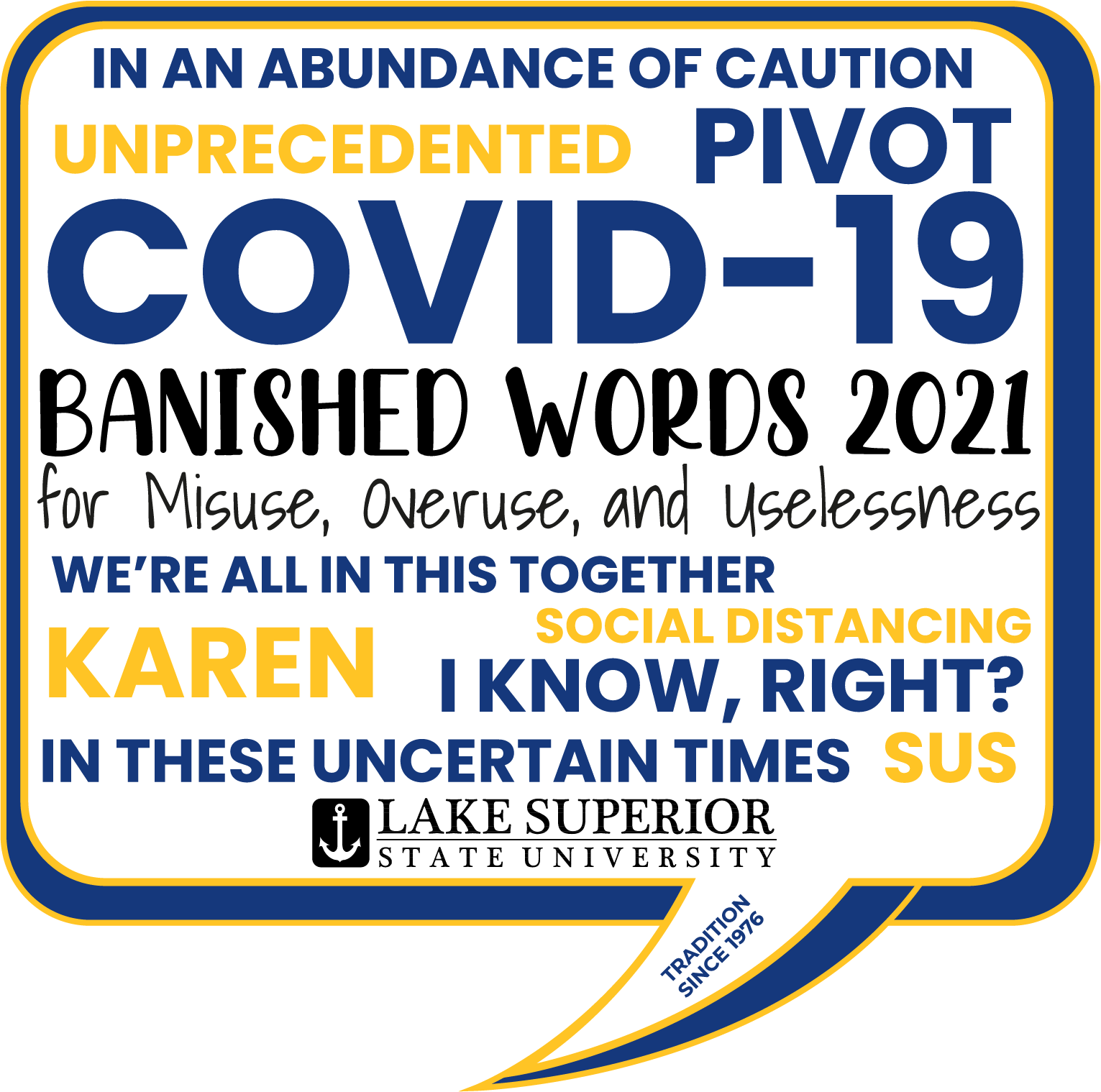“COVID-19,” Other Pandemic Terms Top Lake Superior State’s Banished Words List for 2021
In these uncertain times, the annual year-end tradition for language lovers takes a serious turn.

COVID-19 has infected almost a half-million people in Michigan since the pandemic began, killed more than 12,000 and disrupted the way we work, play, learn, eat, shop and be together.
People are tired of dealing with it. Hearing about it. Thinking about it.
Even saying it.
The term “COVID-19” tops Lake Superior State’s annual list of “banished” words and phrases.
“We want COVID-19 to be done.” — Pete Szatmary on why people want the term and the disease banished.
The list has been a year-end tradition since 1976. It’s meant to be a tongue-in-cheek review of misused, overused and useless words and phrases that annoyed people over the past 12 months.
Pete Szatmary is LSSU’s executive director of marketing and communication. He says the school received more than 1,400 nominations in 2020. “COVID-19” got the most, followed by “social distancing” and “we’re all in this together.” He says the list reflects not only how people feel about the language, but also the pandemic.
Click on the player to hear Pete Szatmary discuss the pandemic’s impact on the English language
“Most of them were saying, ‘you know what, we really want our lives not to be jeopardized and to suffer the upheavals that we’ve had,'” he says. “We want COVID-19 to be done.”
Seven of the 10 finalists on this year’s list were pandemic-related, including:
- COVID-19
- Social distancing
- We’re all in this together
- In an abundance of caution (various phrasings)
- In these uncertain times (various phrasings)
- Pivot
- Unprecedented
“We’re all in this together” made the list because, in the strictest sense, we’re really not. Szatmary says everyone’s situation is unique, even in a pandemic.
“Since we are not clones of each other, it is technically impossible,” he says. “And some of the responses indicated that. It’s imprecise language, and that’s one of the linchpins of the list.”
I know, right, Karen?
Three other terms that had nothing to do with the pandemic round out this year’s banished words list. They include the name “Karen,” which started as an anti-racist critique of the behavior of white women toward people of color, but morphed into a misogynistic insult for any response deemed too emotional.
“Sus” also made it. It’s short for “suspicious.” It comes from a video game called Among Us, and refers to any suspicious character.
“Respondents got impatient about why people simply can’t say the full word, since it’s only a couple of syllables,” Szatmary says.
Finally, there’s “I know, right?” Intended as a way to signal agreement or empathy with someone else, Szatmary says it’s just redundant.
“Why do you need to ask if you already know?” he says.
Since 1976, LSSU has compiled more than 1,000 “banished” words and phrases. It’s already taking nominations for 2022.
Trusted, accurate, up-to-date
WDET is here to keep you informed on essential information, news and resources related to COVID-19.
This is a stressful, insecure time for many. So it’s more important than ever for you, our listeners and readers, who are able to donate to keep supporting WDET’s mission. Please make a gift today.
